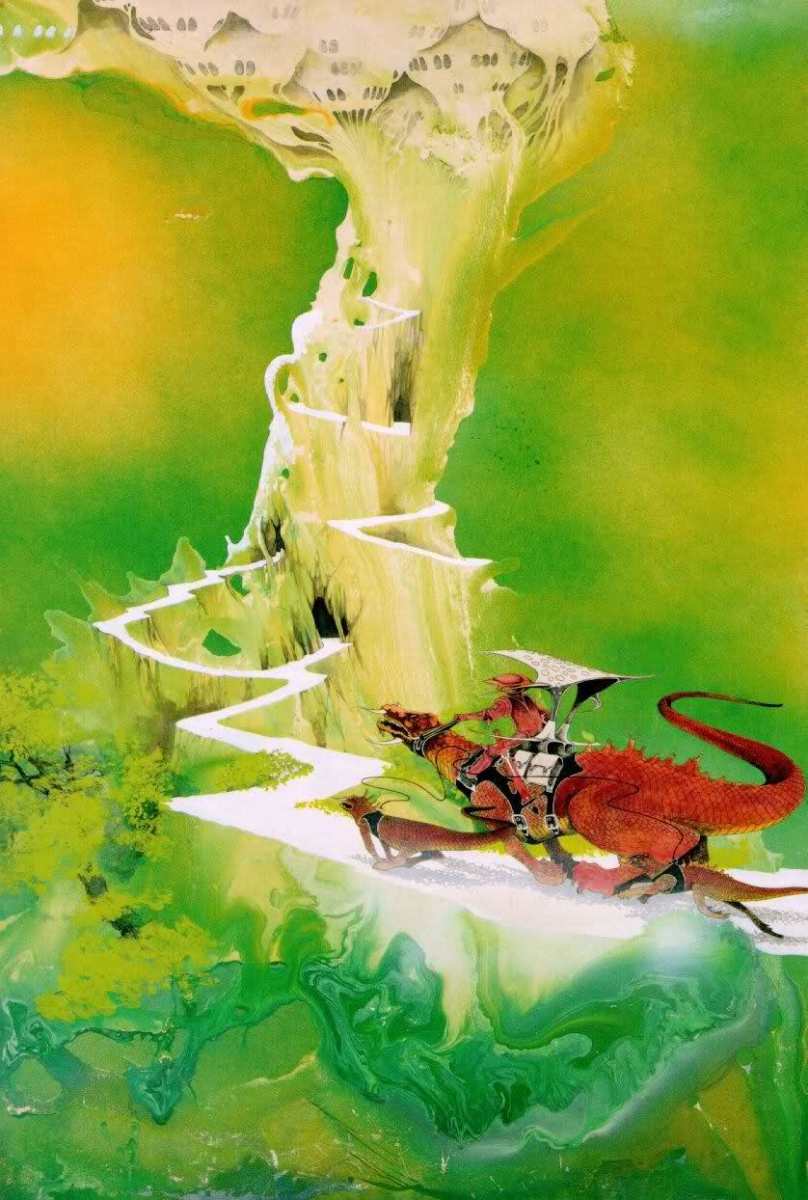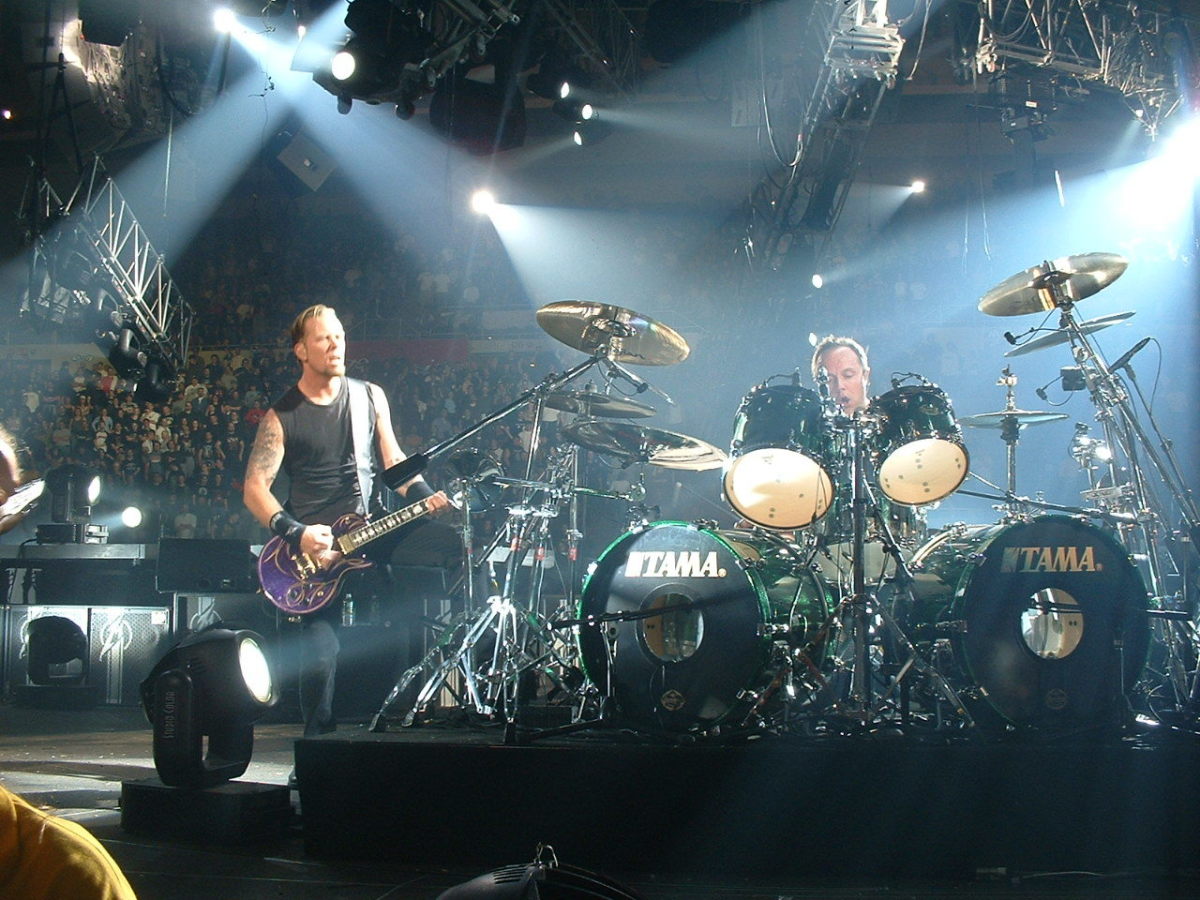Black Sabbath: 1970s Discography
Black Sabbath is likely the most important heavy metal band ever. Here we take a look at their 1970s albums (minus compilations and bootlegs)...
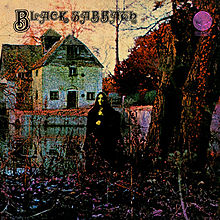
Black Sabbath
1970 * Vertigo
Recorded in one day in 1969, this is the album that to many people marked the official beginning of heavy metal. Everything about Sabbath’s first album is gloomy and creepy, from its cover, to the topics of the songs, to the sludgy, funereal sound of much of the music. Highlights include the classic title track, N.I.B. and The Wizard. Despite all the doom, early Sabbath’s considerable blues influences shine through very strongly on The Wizard, Warning and Behind The Wall of Sleep. The cover of Crow’s Evil Woman is also a nice addition.
Personnel:
Ozzy Osbourne --Vocals
Tony Iommi -- Guitar
Geezer Butler -- Bass
Bill Ward -- Drums
Rodger Bain – Producer
Track listing:
Black Sabbath
The Wizard
Behind the Wall of Sleep
N.I.B.
Evil Woman (on original European version)
Sleeping Village
Warning
Wicked World (CD Reissue)
Rating (out of 5 stars): * * * * *
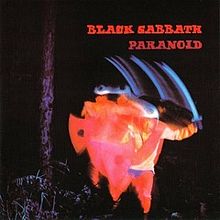
Paranoid
1970 * Vertigo
To most of the world, this is the definitive Black Sabbath album. Every song on Paranoid works, and it’s hard to believe that the title track was recorded and added to the album at the last minute, meant to be filler to pad out the running time (the album was originally going to be titled “War Pigs”). Along with the title track and War Pigs, this album also includes the third of the “big three” Sabbath hits, Iron Man. The sound and production are more polished than on the band’s debut effort, and there’s less blues to be found here, toned down in favor of the more familiar metal sound. Paranoid was the band’s breakthrough album in the US, peaking at number 12 on the Billboard 200, and continuing to sell as a catalogue item for years to come. In the UK, it went all the way to number one. An album that defined an entire genre.
Personnel:
Ozzy Osbourne--Vocals
Tony Iommi--Guitar
Geezer Butler--Bass
Bill Ward--Drums
Rodger Bain – Producer
Track Listing:
War Pigs
Paranoid
Planet Caravan
Iron Man
Electric Funeral
Hand of Doom
Rat Salad
Fairies Wear Boots
Rating (out of 5 stars): * * * * *
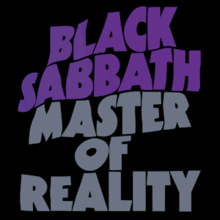
Master of Reality
1971 * Vertigo
Black Sabbath’s third album continued with the tar-heavy, oppressive rock. As a matter of fact, Tony Iommi’s guitar work got even sludgier here than on previous albums. The Sabs shine on songs such as the marihuana-themed Sweet Leaf (that’s actually Tony Iommi’s pot-induced cough at the song’s opening), the pro-Christianity After Forever (hey everyone, we’re not Satanists!) and the heavy as lead Children Of The Grave. Embryo and Orchid are both instrumentals. Master of Reality peaked on the U.S. album charts in 1971 at number 8.
Personnel:
Ozzy Osbourne--Vocals
Tony Iommi--Guitar
Geezer Butler--Bass
Bill Ward--Drums
Rodger Bain – Producer
Track Listing:
Sweet Leaf
After Forever
Embryo
Children of the Grave
Orchid
Lord of This World
Solitude
Into the Void
Rating (out of 5 stars): * * * *
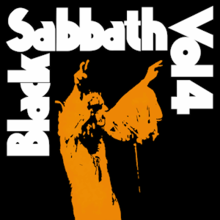
Volume 4
1972 * Vertigo
Volume 4 shows a Black Sabbath that is defining its musical identity, breaking the formula for the first three albums just enough to make things interesting without deviating from the sound that made them stars. The songs seem much more focused and energetic, especially in tight rockers like Supernaut and Tomorrow's Dream. There are the typical long, heavy, multi-part, dirge-like songs, like Wheels of Confusion and Under The Sun. There's even an uncharacteristic ballad (Changes) and an excellent instrumental (Laguna Sunrise). A very good musical mix that makes for a highly listenable album, beginning to end.
Personnel:
Ozzy Osbourne -- Vocals
Tony Iommi -- Guitar
Geezer Butler -- Bass
Bill Ward -- Drums
Patrick Meehan -– Producer
Track Listing:
Wheels of Confusion the Straightener
Tomorrow's Dream
Changes
FX
Supernaut
Snowblind
Cornucopia
Laguna Sunrise
St. Vitus Dance
Under the Sun Every Day Comes and Goes
Rating (out of 5 stars): * * * *
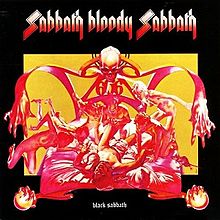
Sabbath Bloody Sabbath
1973 * Vertigo
In Black Sabbath's fifth album, Sabbath Bloody Sabbath, the band experiments with synthesizers (provided here by Yes's Rick Wakeman) and different sounds and song structures. The album also showcases the band at what may have been their musical best, and Ozzy's singing here was at a near career peak. Every song is enjoyable on some level, with the possible exception of the instrumental Fluff, which just serves to interrupt the action. Highlights include the classic title track, Sabbra Cadabra (covered in 1999 by Metallica) and A National Acrobat. Highly Recommended.
Personnnel:
Ozzy Osbourne -- Vocals
Tony Iommi -- Guitar
Geezer Butler -- Bass
Bill Ward -- Drums
Rick Wakeman -- Keyboards
Black Sabbath -- Producers
Mike Butcher -- Engineer
Track Listing:
Sabbath, Bloody Sabbath
A National Acrobat
Fluff
Sabbra Cadabra
Killing Yourself To Live
Who Are You?
Looking For Today
Spiral Architect
Rating (out of 5 stars): * * * * *
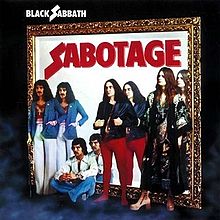
Sabotage
1975 * Vertigo
Unlike their first few albums, Sabotage received much critical acclaim upon its release, and it’s easy to see why. Ozzy’s singing had never been (and would never again be) this good, and the rest of the band is in fine form. Their performance mostly glossed over the intense stress and frustration the band members were feeling around this time, as they were involved in legal tussles with their former management. These troubles are dealt with in the raging, Ozzy-penned tune The Writ. Hole In The Sky was a classic Sab heavy rocker, while Symptom Of The Universe laid the groundwork for future genres like speed metal and thrash. The “radio” at the end of Am I Going Insane (Radio)’s title doesn’t reference a radio edit, but rather obscurely alludes to the song’s theme of mental illness. The choral/instrumental Supertzar is…experimental, to say the least. Sabotage peaked at number 28 in the U.S., and would be the band’s last decent album of the 1970s.
Personnel:
Ozzy Osbourne -- Vocals
Tony Iommi -- Guitar
Geezer Butler -- Bass
Bill Ward —- Drums
Mike Butcher –- Co-Producer (w/ Black Sabbath)
Track Listing:
Hole In The Sky
Don’t Start (Too Late)
Symptom Of The Universe
Megalomania
The Thrill of It All
Supertzar
Am I Going Insane (Radio)
The Writ
Rating (out of 5 stars): * * * *
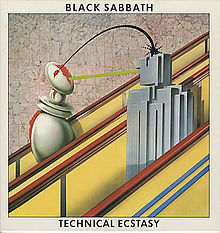
Technical Ecstasy
1976 * Vertigo
Technical Ecstasy was the beginning of the end for the original Black Sabbath. Drug addiction, as well as personal and creative differences were tearing the band apart when this album was recorded (Ozzy actually quit the band after this album, and then returned for Never Say Die). Everything considered, Technical Ecstasy could've been much worse. Iommi's guitar playing, although not as inventive as before, is still good. Ozzy's vocals sound somewhat unenthusiastic, and in general the songs are thoroughly unremarkable. Bill Ward even sings one song here, the so-so ballad It's Alright. Highlights include the often-performed-live Dirty Women and the gritty Backstreet Kids, although this is not an album for the casual fan. The consensus regarding the cover is that those are two robots having sex.
Personnnel:
Ozzy Osbourne -- Vocals
Tony Iommi -- Guitar
Geezer Butler -- Bass
Bill Ward -- Drums
Gerald Woodruffe – keyboards
Track Listing:
All Moving Parts (Stand Still)
Rock N' Roll Doctor
She's Gone
Dirty Women
Backstreet Kids
You Won't Change Me
It's Alright
Gypsy
Rating (out of five stars): * * 1/2
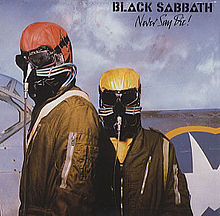
Never Say Die!
1978 * Vertigo / Warner Bros.
The 1970s for Black Sabbath ended not with a bang, but a whimper. Ozzy half-heartedly returned to the band after his abrupt departure following the tour for Technical Ecstasy. Before Ozzy's return, Sabbath was going to record Never Say Die! with Savoy Brown and Fleetwood Mac vocalist Dave Walker. Once Osbourne came back, he refused to sing the songs written with Walker and everything had to hastily be re-done, and it shows in the final product. The resulting album sounded lifeless and hollow, with few traces of the band Sabbath had been just three years before. That being said, the album does have its fans, and the energetic title track and A Hard Road are decent efforts, but still little more than a shadow of the band's glory days. By the following year, Ozzy would leave the band for the next couple of decades, and Black Sabbath was left with the task of rebuilding for a new decade.
Personnel:
Ozzy Osbourne -- Vocals
Tony Iommi -- Guitar
Geezer Butler -- Bass
Bill Ward —- Drums
Don Airey –- keyboards
John Elstar -– harmonica
Will Malone –- brass arrangements
Track Listing:
Never Say Die
Johnny Blade
Junior's Eyes
A Hard Road
Shock Wave
Air Dance
Over to You
Breakout
Swinging the Chain
Rating (out of 5 stars): * 1/2



